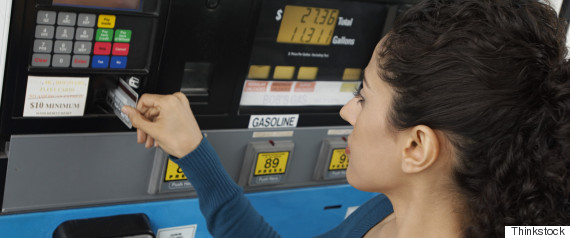We all make mistakes. A screw-up here, a misstep there -- it happens. What really matters is what we learn from it... right? Unfortunately, if those mistakes have anything to do with money, the takeaway can cost way more than you bargained for.
To help save you a headache and some cash, Worth It...Not Worth It? author Jack Otter shares three innocent money mistakes we can all avoid to be smarter about our financial futures.
Mistake #1: Using a debit card at gas stations (and hotels)

Using your debit card to get your morning latte is one thing, but gas stations operate a little differently than your local coffee shop, Otter points out.
"[If] you charge $2 or $3 of coffee, it goes out of your back account, end of story," he says. "But if you use your debit card at a gas station, you might only get $30 worth of gas -- but the gas station puts a hold on $80 or $100, whatever it estimates you might have spent. Until it reconciles its books, you can't touch that money. So, you could overdraft your bank account even though the money's in there."
It's even worse when you book a hotel, Otter says.
"Say you're going to stay at a hotel for five nights, a $200 room. Not only will they hold that money, they'll estimate incidentals you might use -- the gym, the minibar, whatever," he explains. "You could see $1,200 in your bank account frozen."
To be on the safe side, Otter suggests using your debit card as little as possible, instead defaulting to a credit card or cash. (The exception: If you carry a balance on your credit card. In that case, use the debit.)
Mistake #2: Paying off your mortgage early

The moment you buy a house, paying down your mortgage becomes a high priority for many homeowners. While this seems like a responsible thing to do, Otter says there's actually a much smarter strategy for your finances.
"A better use for your money is to put it into your retirement account, your 401k," he advises. "It mainly comes down to taxes... Your employer pays you $1, but after taxes, that's only 70 or 80 cents. If you put it in your 401k, that's pre-tax, so the full dollar goes into your 401k. Plus the company match, that's $1.50 you're putting toward retirement."
In other words, you could pay your 70 cents toward the mortgage, or you could save the $1.50 in your retirement account. The latter strategy, Otter insists, is the smarter move.
"Over 20, 30, 40 years, that money compounds tax-free. So, you're much better off putting it in the 401k," he says.
Mistake #3: Falling in love

What's wrong with love? Nothing, unless you and your partner differ in what you splurge on versus save.
"We all have sort of a mental financial math where we splurge on the things we really love, and then we cheap out on the things we don't care about," Otter says. "Then, you meet someone who has different priorities: You love to eat out... You don't care much about traveling. But your partner, he or she loves to travel."
In this situation -- as is common in relationships -- the key is communication and compromise.
"The solution is not to tell your partner he or she can't go on that wonderful trip," Otter insists. "The solution is to work together to come up with financial priorities. Sit down and say, 'Okay, these are the things we love to do together; we're going to figure out a way to pay for them. In order to do that, here are the things we're going to have to cut back on.'"
More money advice: How to trick yourself into growing your savings
Related
Before You Go





Next: 7 things to stop spending money on right now

